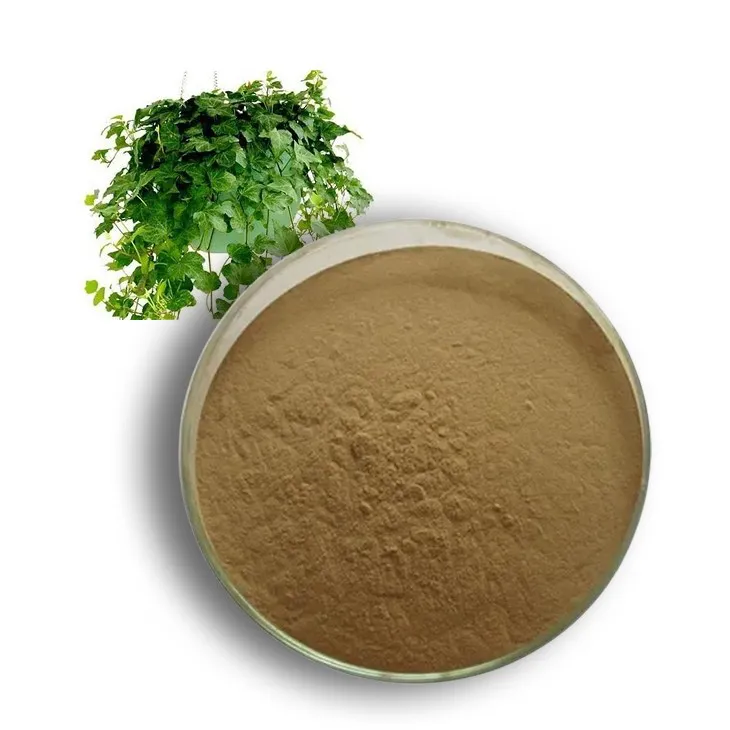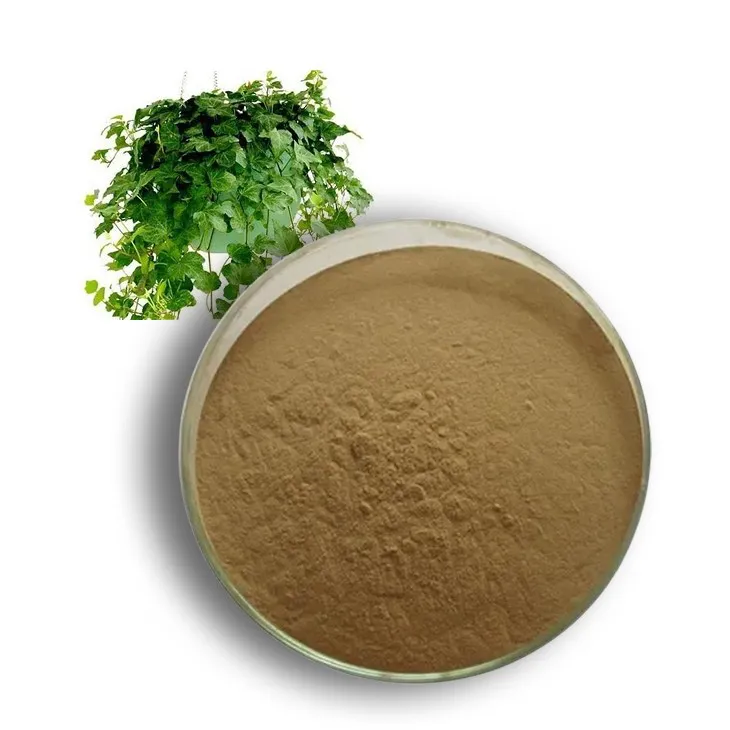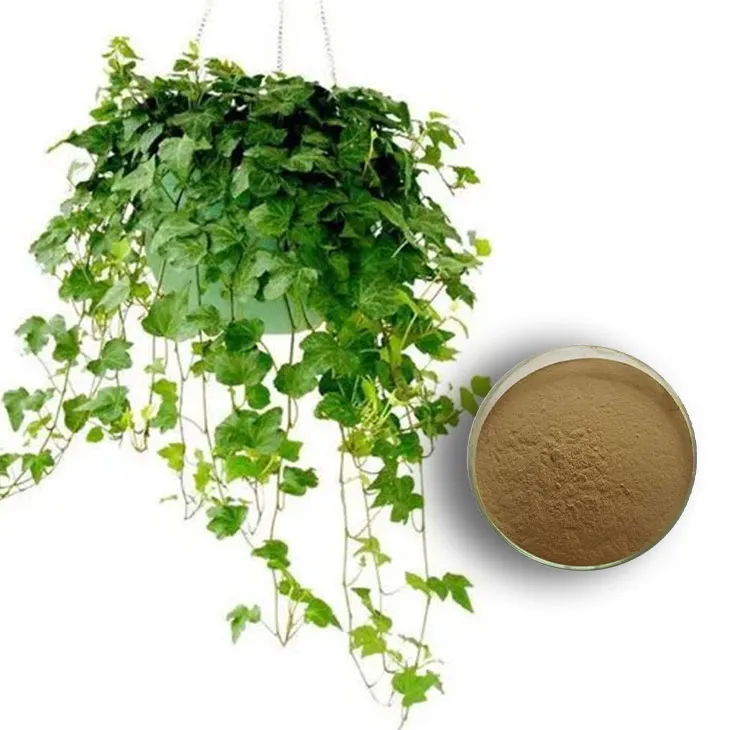- 0086-571-85302990
- sales@greenskybio.com
Expert Tips for Effective Wholesale Purchasing of Ivy Extract.
2024-12-18

1. Introduction
Ivy Extract has gained significant popularity in various industries, including the pharmaceutical, cosmetic, and herbal supplement sectors. For businesses looking to purchase Ivy Extract in wholesale quantities, it is crucial to approach the process with knowledge and strategy. This article will provide expert tips on effective wholesale purchasing of Ivy Extract, covering aspects such as market research, quality control, and negotiation skills.

2. Market Research
2.1 Understanding the Market Demand
Before making any wholesale purchases, it is essential to have a clear understanding of the market demand for ivy extract. Research the current trends in the industries that use ivy extract. For example, in the pharmaceutical industry, are there new drugs or treatments being developed that require ivy extract? In the cosmetic industry, is there a growing demand for ivy - based skincare products? Analyze market reports, industry publications, and news sources to gather this information.
2.2 Identifying Suppliers
Once you have a grasp of the market demand, the next step is to identify potential suppliers. Look for suppliers both locally and internationally. You can start by searching online directories, attending trade shows, or asking for referrals from industry contacts. Make a list of potential suppliers and research their reputation, experience, and product range.
- Check online reviews and ratings of suppliers. A supplier with a high number of positive reviews is likely to be reliable.
- Look into their years of operation. An established supplier may have more stable production processes and quality control measures.
- Examine their product range. A supplier that offers a variety of ivy extract products may be more flexible in meeting your specific requirements.
2.3 Comparing Prices
Price is an important factor in wholesale purchasing. However, it should not be the only consideration. Compare the prices offered by different suppliers, but also take into account the quality of the product, delivery times, and minimum order quantities. Some suppliers may offer lower prices but have longer lead times or higher minimum order requirements.
- Request price quotes from at least three to five suppliers.
- Ask for a breakdown of the prices, including any additional costs such as shipping, taxes, and handling fees.
- Consider long - term price stability. A supplier that offers a slightly higher price but with stable prices over time may be a better option than one with fluctuating prices.

3. Quality Control
3.1 Understanding Ivy Extract Specifications
To ensure the quality of the ivy extract you purchase, it is crucial to understand the relevant specifications. Different applications may require different levels of purity, concentration, and active ingredient content. For example, pharmaceutical - grade ivy extract may need to meet strict purity standards set by regulatory authorities, while cosmetic - grade extract may have different requirements related to its appearance and odor.
Research the industry standards for ivy extract in your intended use. Consult with experts or regulatory agencies if necessary. Make sure you communicate these requirements clearly to your potential suppliers.
3.2 Testing and Certification
Ask suppliers for information on the testing and certification of their ivy extract products. Reputable suppliers should be able to provide documentation such as certificates of analysis (COA), which detail the chemical composition and quality parameters of the product.
- Look for third - party testing. This adds an extra layer of credibility as it shows that an independent organization has verified the quality of the extract.
- Check for certifications such as Good Manufacturing Practice (GMP) for pharmaceutical products or Organic certifications for those interested in organic ivy extract.
3.3 Sampling
Before making a large - scale wholesale purchase, request samples from your short - listed suppliers. Testing the samples in - house or sending them to a qualified laboratory can help you assess the quality of the ivy extract firsthand.
When sampling, ensure that the samples are representative of the actual product you will be purchasing. Pay attention to factors such as consistency, color, and smell. If possible, conduct performance - based tests depending on the intended use of the extract, such as efficacy tests for pharmaceutical applications or skin compatibility tests for cosmetics.

4. Negotiation Skills
4.1 Building a Relationship
Negotiation is not just about getting the best price; it is also about building a long - term relationship with your supplier. Start by establishing good communication with the supplier. Show your interest in their products and business. This can create a more positive and collaborative negotiation environment.
For example, you can ask about their production processes, quality control measures, and future plans. This not only helps you gain more information but also shows that you are a serious and engaged buyer.
4.2 Price Negotiation
When it comes to price negotiation, be prepared with your research on market prices and competitor offers. Highlight your volume requirements as this can often lead to better pricing. For example, if you are planning a large - scale wholesale purchase, the supplier may be more willing to offer a discount.
However, also be realistic in your expectations. Suppliers need to make a profit as well. Consider alternative forms of cost - savings, such as shared marketing costs or longer - term contracts in exchange for better prices.
4.3 Terms and Conditions
In addition to price, negotiate other terms and conditions such as delivery times, payment terms, and quality guarantees. Ensure that the delivery times are in line with your business needs. If you have a tight production schedule, you may need a supplier who can deliver quickly.
Regarding payment terms, discuss options such as upfront payments, installments, or credit terms. A good quality guarantee is also essential. This may include provisions for product replacement or refunds in case of sub - standard quality.
5. Logistics and Shipping
5.1 Understanding Shipping Options
Once you have finalized your wholesale purchase, it is important to consider the logistics and shipping aspects. Understand the different shipping options available, such as air freight, sea freight, or land transport. Each option has its own advantages and disadvantages in terms of cost, speed, and volume capacity.
For example, air freight is generally faster but more expensive, while sea freight is slower but more cost - effective for large volumes. Consider your budget, time constraints, and the quantity of ivy extract being purchased when choosing a shipping option.
5.2 Packaging Requirements
Ensure that the ivy extract is packaged properly for shipping. Good packaging not only protects the product from damage during transit but also helps maintain its quality. Depending on the form of the extract (powder, liquid, etc.), the packaging requirements may vary.
For example, liquid ivy extract may require sealed, leak - proof containers, while powder extract may need to be packaged in moisture - proof bags or containers. Discuss the packaging requirements with your supplier to ensure that the product arrives in good condition.
5.3 Customs and Import Regulations
If you are importing ivy extract from another country, be aware of the customs and import regulations. Research the import duties, taxes, and any restrictions on the import of ivy extract in your country. Some countries may have specific requirements regarding the labeling, documentation, or quality of imported herbal products.
Work with a customs broker or freight forwarder if necessary to ensure a smooth import process. Provide all the required documentation accurately and on time to avoid any delays or additional costs.
6. Conclusion
Effective wholesale purchasing of ivy extract requires a comprehensive approach that encompasses market research, quality control, negotiation skills, and logistics management. By following these expert tips, businesses can make informed decisions and ensure that they are getting the best value for their money while also maintaining high - quality standards for their products.
FAQ:
Q1: Why is market research important in wholesale purchasing of ivy extract?
Market research is crucial in wholesale ivy extract purchasing. It helps you understand the current market trends, such as the demand and supply situation. By knowing the market trends, you can predict price fluctuations and ensure that you buy at a reasonable price. It also enables you to identify reliable suppliers and potential competitors in the market.
Q2: How can one ensure the quality of ivy extract in wholesale?
To ensure the quality of ivy extract in wholesale, start by looking for suppliers with good reputations. Ask for certificates of analysis which detail the product's composition, purity, and potency. You can also request samples to conduct your own quality tests. Check for compliance with relevant industry standards and regulations, such as Good Manufacturing Practice (GMP) standards.
Q3: What negotiation skills are useful in wholesale purchasing of ivy extract?
Effective negotiation skills are essential. Firstly, do your homework and know the market price range before starting negotiations. Be clear about your requirements and quantity. Try to build a good relationship with the supplier as it can lead to more favorable terms. Be prepared to walk away if the deal doesn't meet your expectations. Also, consider bundling other products or services in the negotiation to get a better overall deal.
Q4: Are there any legal considerations in wholesale ivy extract purchasing?
Yes, there are several legal considerations. Ivy extract may be subject to certain regulations regarding its extraction, production, and sale. Ensure that the supplier has the necessary licenses to operate. There may also be restrictions on its use in different regions or industries, for example, in the pharmaceutical or cosmetic fields. Complying with all relevant laws and regulations is crucial to avoid legal issues.
Q5: How can one find reliable suppliers for wholesale ivy extract?
To find reliable suppliers, you can start by searching online directories and industry platforms. Attend trade shows and exhibitions related to the herbal extract industry where you can meet suppliers in person. Ask for referrals from other businesses in the same field. Check online reviews and testimonials from previous customers. Once you shortlist suppliers, conduct in - depth background checks, including their financial stability and production capabilities.
Related literature
- The Complete Guide to Ivy Extract: Properties and Applications"
- "Quality Assurance in Herbal Extracts: A Focus on Ivy Extract"
- "Market Trends in Wholesale Herbal Extracts: The Case of Ivy Extract"
- ▶ Hesperidin
- ▶ citrus bioflavonoids
- ▶ plant extract
- ▶ lycopene
- ▶ Diosmin
- ▶ Grape seed extract
- ▶ Sea buckthorn Juice Powder
- ▶ Beetroot powder
- ▶ Hops Extract
- ▶ Artichoke Extract
- ▶ Reishi mushroom extract
- ▶ Astaxanthin
- ▶ Green Tea Extract
- ▶ Curcumin Extract
- ▶ Horse Chestnut Extract
- ▶ Other Problems
- ▶ Boswellia Serrata Extract
- ▶ Resveratrol Extract
- ▶ Marigold Extract
- ▶ Grape Leaf Extract
- ▶ blog3
- ▶ blog4
- ▶ blog5
-
Pure 85% Tomentil Extract.
2024-12-18
-
Lily extract
2024-12-18
-
Epimedium extract powder
2024-12-18
-
Konjac Powder
2024-12-18
-
Grape Leaf Extract
2024-12-18
-
Acai Berry Extract
2024-12-18
-
Alfalfa Meal
2024-12-18
-
Honeysuckle Pollen
2024-12-18
-
Maitake Mushroom Extract
2024-12-18
-
Oat Straw Extract Powder
2024-12-18
-
Hedyotis Diffusa Extract
2024-12-18





















